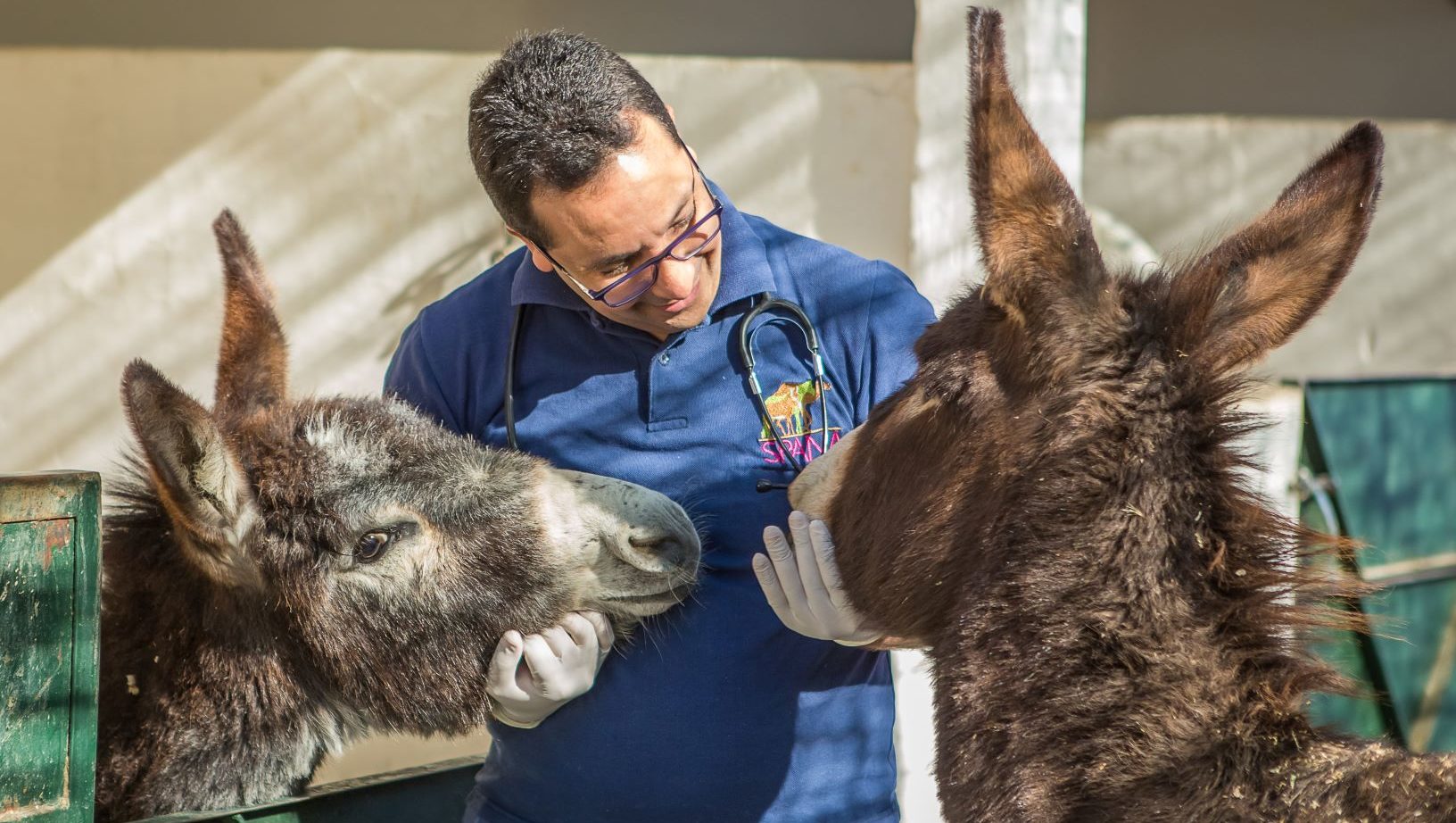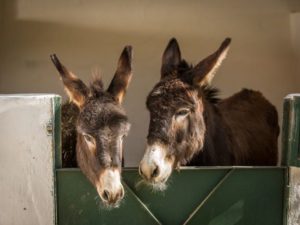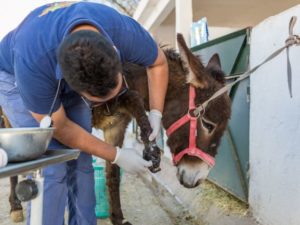Changing working animals’ lives

Morocco was one of the first countries that Together for Animals member SPANA began its work to improve the lives of working animals. 97 years on — the work they started continues to thrive and flourish.
Last year, in Morocco SPANA’s five centres and two mobile clinics provided veterinary treatments to more than 37,500 suffering animals across the country. Here is one of the many inspiring success stories that you have helped to make possible.
On the morning Amina the donkey was brought to SPANA’s centre in Marrakech, Morocco, she was weak and barely able to stand. Amina had been abandoned by her owner and a member of our veterinary staff had spotted her together with her vulnerable young foal, Najat, near the centre. The donkey was visibly struggling with lameness and the vet team member was concerned about the foal, who looked weak and malnourished. SPANA staff at the Marrakech centre were not surprised to find Amina and little Najat dropped off near their gates. It’s not uncommon for owners to abandon injured animals or foals who are too young to work.
 Once the vet staff settled the pair, they closely examined Amina’s front right leg and found the source of her growing pain. A tight plastic
Once the vet staff settled the pair, they closely examined Amina’s front right leg and found the source of her growing pain. A tight plastic
cord had been tightly wrapped around Amina’s leg, which made it a struggle for the defenceless animal to walk. The cord, likely used by her
previous owner to secure the donkey, had cut off her hoof’s circulation. The limited blood flow was causing Amina’s hoof to slowly die.
The longer the tight cord remained wrapped around Amina’s leg, the greater the discomfort it caused with each step she took. The vets knew that they needed to act fast, or her phalanx bone would become infected and be unable to heal properly. An infection would cause Amina to be in constant, debilitating pain.
To save Amina from a life of suffering and lameness, they would need to protect the new hoof until it completely grew back. For the hoof to remain clean as it healed, Amina would have to stay in the SPANA centre for several months to fully recover.
Every day, the team washed and dressed the hoof and covered it in a safe waterproof wrap when she needed some gentle exercise. The vets ensured that she was given enough nutritious feed, water and much-needed rest to safely nurse her foal, Najat, for the first two months of her stay.
When Najat first arrived at the centre, it was clear that she was quite nervous of her new surroundings, but as the days went on the vets were delighted to see that her young and spritely energy had returned. The excitable little foal spent most of her days playfully galloping around the stables and curiously exploring whenever she could, making fast friends with the vet team as well as other patients.
 After over six months of non-stop care and scrupulous wound management, the motherly donkey made a successful recovery. Amina and Najat will continue to be well looked after by the team until they find a new home. Either the pair will be rehomed with a responsible owner, or they will join the other furry residents at SPANA’s animal handling centre where they will be given plenty of care and attention.
After over six months of non-stop care and scrupulous wound management, the motherly donkey made a successful recovery. Amina and Najat will continue to be well looked after by the team until they find a new home. Either the pair will be rehomed with a responsible owner, or they will join the other furry residents at SPANA’s animal handling centre where they will be given plenty of care and attention.
You made it possible
Even simple, everyday problems can be fatal for working animals if they can’t access the right level of care. An untreated minor injury can lead to excruciating lameness, putting an end to an animal’s working life and often leading to abandonment and even death.
If an injury like Amina’s becomes infected it can kill – yet a simple course of antibiotics and a tetanus injection can cost under £15. Vital medicine like this is all it takes to stop an animal dying an agonising death.


